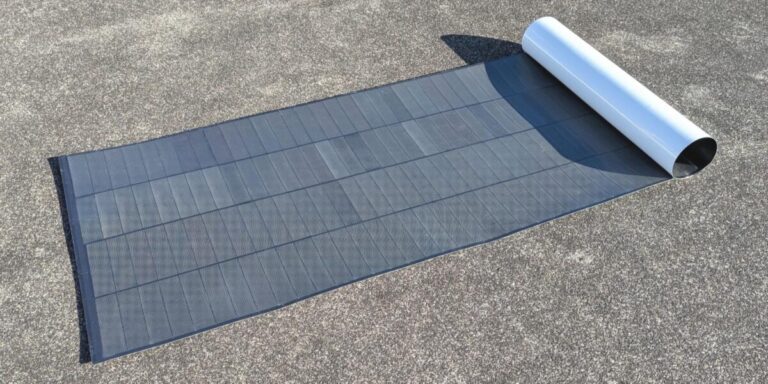PXP Corporation recently raised JPY1.5 billion ($9.98 million) in a round led by Japan’s Softbank Corp. to move forward with its plan to build a 25 MW chalcopyrite module factory.
PXP Corporation, a Japanese startup company developing flexible chalcopyrite photovoltaic modules, announced that it has raised JPY 1.5 billion ($9.98 million) through a Series A venture capital round led by Japan’s SoftBank Corp., a publicly traded telecommunications and media technology company.
Chalcopyrite (CuGaSe2) has an energy bandgap of 1.7 eV and has so far been used in solar cells with a limited fill factor and no-load voltage.
PXP Corporation plans to produce flexible chalcopyrite modules and develop a tandem perovskite-chalcopyrite solar cell technology. The goal is to scale up from a pilot line to a dedicated factory for production, R&D and training. “We are planning a factory with an annual production capacity of approximately 25 MW,” said Hiroki Sugimoto, Chief Technology Officer of PXP Corporation. pv magazine.
Production will start with chalcopyrite modules with an efficiency of 18%. At a later stage, the company plans to produce chalcopyrite panels with an energy conversion efficiency of 19.2%, Sugimoto said.
PXP is also working on perovskite-chalcopyrite tandem cells, which achieved 26.5% efficiency in the lab earlier this year. “Since then, efforts have been focused on improving sustainability,” Sugimoto said.
PXP Corporation has demonstrated its lightweight and flexible chalcopyrite modules in a range of vehicle-integrated PV (VIPV) applications over the past year, such as portable solar-powered reefer containers, a solar-integrated passenger car and an electric three-wheeler.
This is what a Softbank spokesperson said pv magazine that the company objectives to use PXP technology in various applications, such as powering data centers with clean energy, supplying energy provide power to portable base stations that can be deployed during emergencies in disaster-affected areasand on the Ultralight High Altitude Platform Station (HAPS), the solar-powered aircraft intended to operate at an altitude of 20 km above the Earth’s surface, carrying telecommunications base stations as its payload.
Co-investors in the venture financing round included Solable Corporation, Kowa Optronics, Toyota Tsusho Corporation, J&TC Frontier, a joint investment vehicle between JFE Engineering Corporation and Tokyo Century Corporation, Automobile Fund Co., Mitsubishi HC Capital Co, Yokohama Capital Co., Ltd ., and Taro Ventures.
This content is copyrighted and may not be reused. If you would like to collaborate with us and reuse some of our content, please contact: editors@pv-magazine.com.


